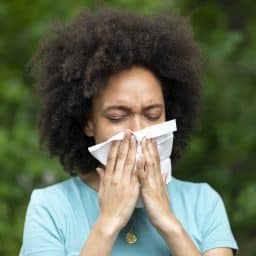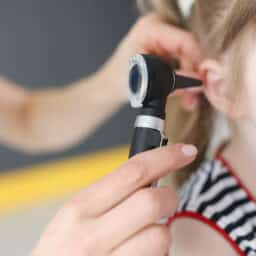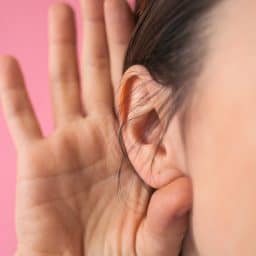How to Stop Postnasal Drip

The condition called postnasal drip (PND)occurs when mucus drips down the back of your throat. Since mucus can irritate the throat, postnasal drip is associated with chronic cough. One article reports, “PND is a common complaint in primary care and ear-nose-throat offices.” In this post, we review how to stop postnasal drip. Home Remedies There…
What Is an Upper Respiratory Tract Infection?

Upper respiratory tract infections affect the nose, throat, pharynx, larynx and/or bronchi. They are among the most common reasons people get sick. According to an article published in the National Library of Medicine, “Upper respiratory tract infections are accountable for greater than 20 million missed days of school and greater than 20 million days of…
How to Reduce Allergens in Your Kitchen

The Asthma and Allergy Foundation of America reports, “Many people with allergies often have more than one type of allergy. The most common indoor/outdoor allergy triggers are: tree pollen, grass pollen, and weed pollen, mold spores, dust mites, cockroaches, cat and dog dander, and rodent urine.” It’s an unfortunate truth that many of these allergens…
Don’t Let Allergy Symptom Detract From The New Year

If you have allergies, you’re far from alone. According to the Asthma and Allergy Foundation of America, more than 50 million people in the United States experience various types of allergies each year. If you’re sick of dealing with the constant nasal congestion and sneezing fits every time you take a walk through Twin Creeks…
Allergies Worse in the Morning? It Might Be Dust Mites

Do you wake up every morning with itchy eyes and a runny nose? If you’ve noticed that your allergy symptoms always seem worse in the morning, it may be due to an incredibly common culprit: dust mites. What are Dust Mites? Dust mites are microscopic pests. They are closely related to ticks and spiders, and…
How To Manage Chronic Ear Infections

Ear infections are incredibly common, especially in children. While the occasional infection is normal, frequent or chronic ear infections can pose more serious health consequences. Chronic Ear Infections and Hearing Loss Risk While it’s not uncommon for children with an ear infection to experience some temporary muffled hearing due to fluid buildup in the ear,…
What is Unilateral Hearing Loss?

What is Single Sided Deafness? Sometimes referred to as unilateral hearing loss, single sided deafness is a condition in which an individual experiences hearing loss in only one ear but can hear normally out of the other ear. While most patients with a hearing impairment suffer from bilateral (two-sided) hearing loss, SSD affects approximately 60,000…
What is Sudden Hearing Loss?

For most people who experience hearing loss, the condition comes on gradually over a period of years. In rare cases, an abrupt loss of hearing occurs with little or no warning. This condition is known as sudden sensorineural hearing loss (SSHL). What is Sudden Deafness? Sudden deafness is an unexplained and rapid hearing loss that…
What is Noise Induced Hearing Loss?

How Can Sounds Hurt Your Ears? Background sound is a constant in our busy lives. Normally, background noises are at safe levels that do not negatively impact our hearing. But repeated exposure to noise above 85 decibels (dB) can cause noise induced hearing loss. The louder the sound, the less amount of time it takes…
